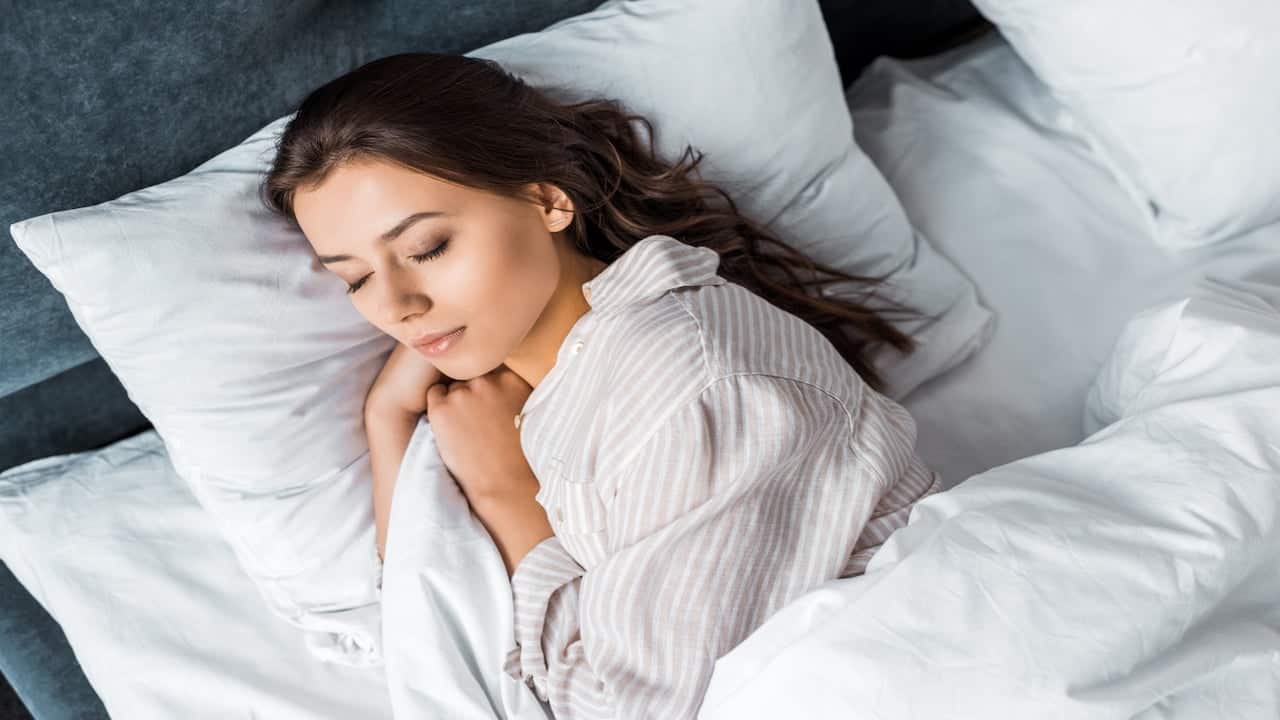There are countless products on the market to help people fall asleep and improve sleep patterns. We see melatonin gummies, eye masks, weighted blankets, and a bunch of other products that all claim to help you sleep. For some, these products may help, but it just doesn’t cut it for a lot of us. Lack of sleep or poor sleep quality can negatively affect a person’s life in many ways.
While hypnosis seems like a drastic measure just to go to sleep, it actually makes complete sense. Hypnosis typically involves induction into a trance state, which is a state of enhanced relaxation. Hypnotherapy can happen on many different platforms, including numerous apps, audio recordings, or music, and can be the key to getting better sleep.
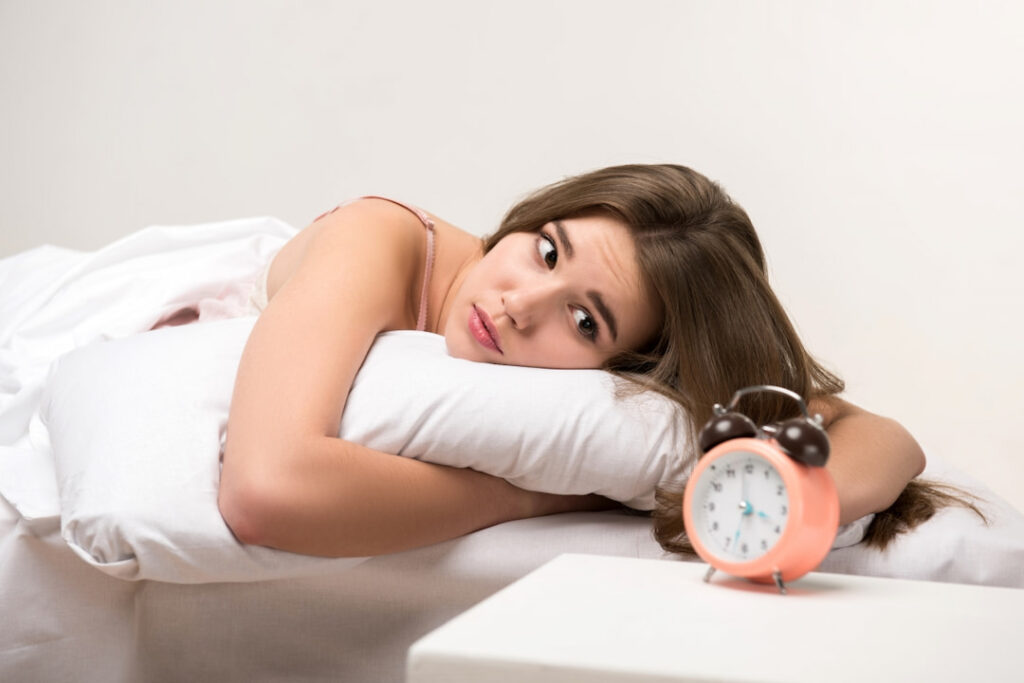
What is Hypnosis for Sleep?
Sleep hypnosis is a type of hypnotherapy that focuses on falling asleep faster and improving sleep quality. Sleep hypnosis targets the loud thoughts of the conscious mind and helps to relax the mind and body to help you fall asleep. It is similar to other types of hypnosis, which places you in a trance-like state to be more receptive to relaxation suggestions.
The hypnotherapist can suggest certain visualizations, physical prompts, and breathing patterns to help your mind and body relax. There are many options, including hypnotherapy apps and guided audio meditation to help you fall asleep faster and better.
Typically a sleep hypnosis session will include:
- A hypnotherapist with a calming tone of voice.
- It is the introduction of physical prompts to relax different parts of the body.
- It increased mental awareness to reduce anxious thoughts.
- Deep breathing or rhythmic breathing exercises.
- Visualization or imagery practice to reach a calm state of mind.
As with any type of hypnosis, it is important to consent to the hypnosis and suggestions as you can lower inhibitions during the trance-like state.
Do I Really Need Sleep Hypnosis?
Some people swear by it, and others are skeptical of the effectiveness of hypnosis. The truth is, it can work for some people, but it may not be for everyone. If you have tried other sleeping products on the market and still struggle to find one that works for you, there is no harm in trying sleep hypnosis or self-hypnosis to help you sleep.
Hypnosis for sleep is an approved medical treatment and actually has science that backs it up. While some people may find it uncomfortable to be depending on an app to go to sleep, at the end of the day, if it is helpful in your sleep health, there is nothing wrong with it. There can be many benefits to guided sleep hypnosis, including reduced stress, better sleeping schedule, falling asleep faster, and overall better sleep quality.
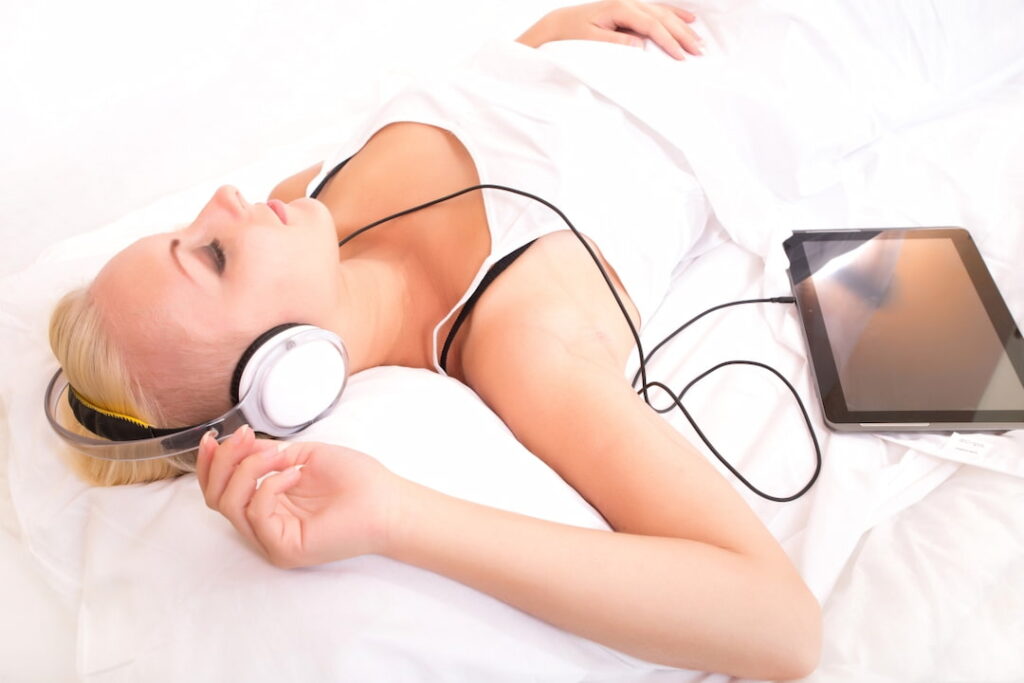
Does Hypnosis Actually Work for Sleep?
Yes! Hypnosis for sleep actually works for many people. There is a science that backs up these claims and isn’t just some magic word or phrase that can put you to sleep. The techniques of hypnosis for sleep is growing in popularity due to the safety, effectiveness, and how convenient it is to use. For other types of hypnosis, it may require a physical session with a hypnotherapist, but there are many different techniques that you can do on yourself to help you sleep.
Hypnosis works for sleep since it uses the same relaxation process and targets the subconscious as other types of hypnotism. Hypnosis puts the subject in a deeper state of relaxation, which is helpful to calm the mind and body for quicker sleep. During this trance state, the brain is lowered to theta, delta, and alpha waves, which help to rest the mind, similar to the stages of sleep. During this stage, it also increases activity on the right side of the cerebral cortex, which controls the subconscious.
Through focused and tailored suggestions to the subconscious, these thoughts are able to bypass the conscious mind and allow you to actively think less. It is almost like a shortcut to your subconscious telling you to relax your body and mind. There are also a number of different factors paired with guided hypnosis that may aid your sleep. This can including listening to calming music, a relaxing voice, or guided meditation.
Not only can sleep hypnosis help with insomnia, but it is also proven to help with other areas of health such as lower anxiety, reduce stress, and pain reduction.
What is the Best Sleep Hypnosis?
There are many suggestions that can be made during sleep hypnosis, and everyone may require something a bit different. It may take exercise and practice in order to successfully use sleep hypnosis to trick your brain into thinking it is bedtime. Luckily, there are many different apps out there that you can customize and choose from.
You may find that there is an app that works better for you. Some apps are better for insomnia, and others focus on anxiety or sleep quality. After completing the search for the best hypnosis app, we found that customization and ease of use determined the quality of the app.
Depending on what you prefer, there is an app out there for you. Ideally, you want to look for one that is not a hassle to use and includes features that can benefit your sleep. Some track data, and others may focus on aspects of sleep that you may value. epending on what you prefer, there is an app out there for you. We found that even the free apps offer a wide range of customization options.
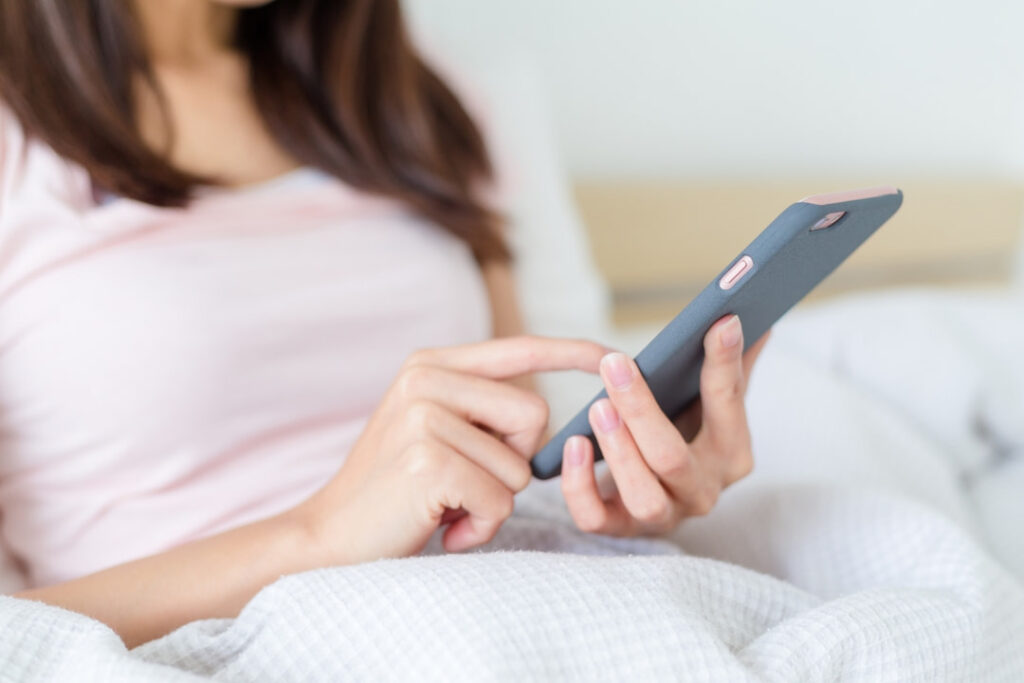
How Do You Hypnotize Yourself to Sleep?
Self-hypnosis can be more helpful than a hypnotherapy app since it is more personalized to your liking and is always available whenever you need it. The key to self-hypnosis is a strong foundation of focus, which can help you induce a hypnotic state without the help of an app.
The steps to successful self-hypnosis include:
- Adjust your surroundings- Typically, a dark or dimly lit room and a comfortable resting place isdepending ideal. Some people like to rest on the bed, and others find moving to the bed after induction helps to build better sleeping patterns.
- Use hypnotic induction- Hypnotic induction brings you to a calmer trance-like state which can help you relax initially. During self-induction, stay focused on deep breathing and releasing tension in the mind and body. Some people find that focusing on each muscle in the body from head to toe can help relax the body further.
- Introduce effective suggestions- It may take a couple of trials to find what works best for you. In general, it is helpful to use clear directions or visualizations that you know can help put you to sleep. This can range from telling your brain to push out unnecessary thoughts to visualizing a calming ocean scene.
- Take yourself out of the trance state- Some may find this step a bit unnerving, but it is actually not hard to do on yourself. You are directly reaching your subconscious, so you can tell yourself to become aware of things around you. One way to return to alertness is to count to five and tell yourself to become aware. For those that are using sleep hypnosis to fall asleep, this step is not needed since you will sleep and eventually bring yourself out of that state.
For those who suffer from insomnia, some helpful tips include visualization or metaphors that can induce a deeper sleep. An example is to envision diving into a deep ocean as an animal. As with other types of treatment, it may take some time to determine what works and what doesn’t. Sleep therapy is personal, which is why it is important to take the time to practice and develop the technique that works best for your bedtime.
Is Hypnosis a State of Deep Sleep?
Hypnosis is commonly mistaken for falling asleep, but it actually does not involve it at all. In hypnotherapy, the subject is actually awake and put into a trance-like state. The brain activity is lowered to a more relaxed state similar to those that we see during sleep, but the body remains awake. This is why we covered hypnosis for lucid dreaming separately.
Some people believe it is similar to deep sleep since the subject is usually unable to move. Also, during this trance state, the subconscious mind is able to be manipulated and reached. The rest of the body still functions normally as if it is awake. Sleep hypnosis is still able to help with sleep, even though it does not involve deep sleep. During the relaxed state, anxiety is lowered, making it easy to make a suggestion to benefit your sleep.
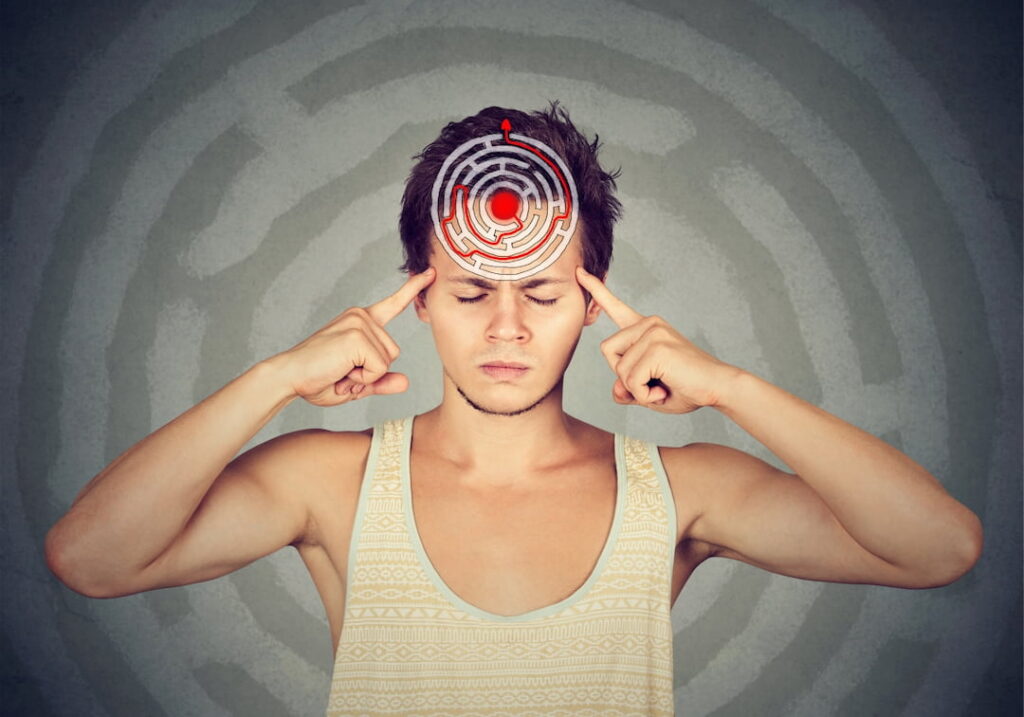
Risks of Sleep Hypnosis
Sleep hypnosis is not found to have any adverse health effects; however, it is still important to talk to a clinical professional before trying it. Some people with certain medical or mental health conditions may be more prone to certain risks. In this case, the doctor may advise you to take certain precautions or see a professional hypnotherapist for sleep hypnosis.
Should I Try Sleep Hypnosis?
Since sleep hypnotherapy is regarded as safe and has many benefits, there is no harm in trying it out. Especially if you have exhausted all other methods in curing insomnia or poor sleep quality, hypnotherapy may be the answer. There are also many methods to perform guided self-hypnosis at home through the use of apps or audio clips. Sleep hypnosis is effective, convenient, and can help to improve not only sleep but your overall health as well.

